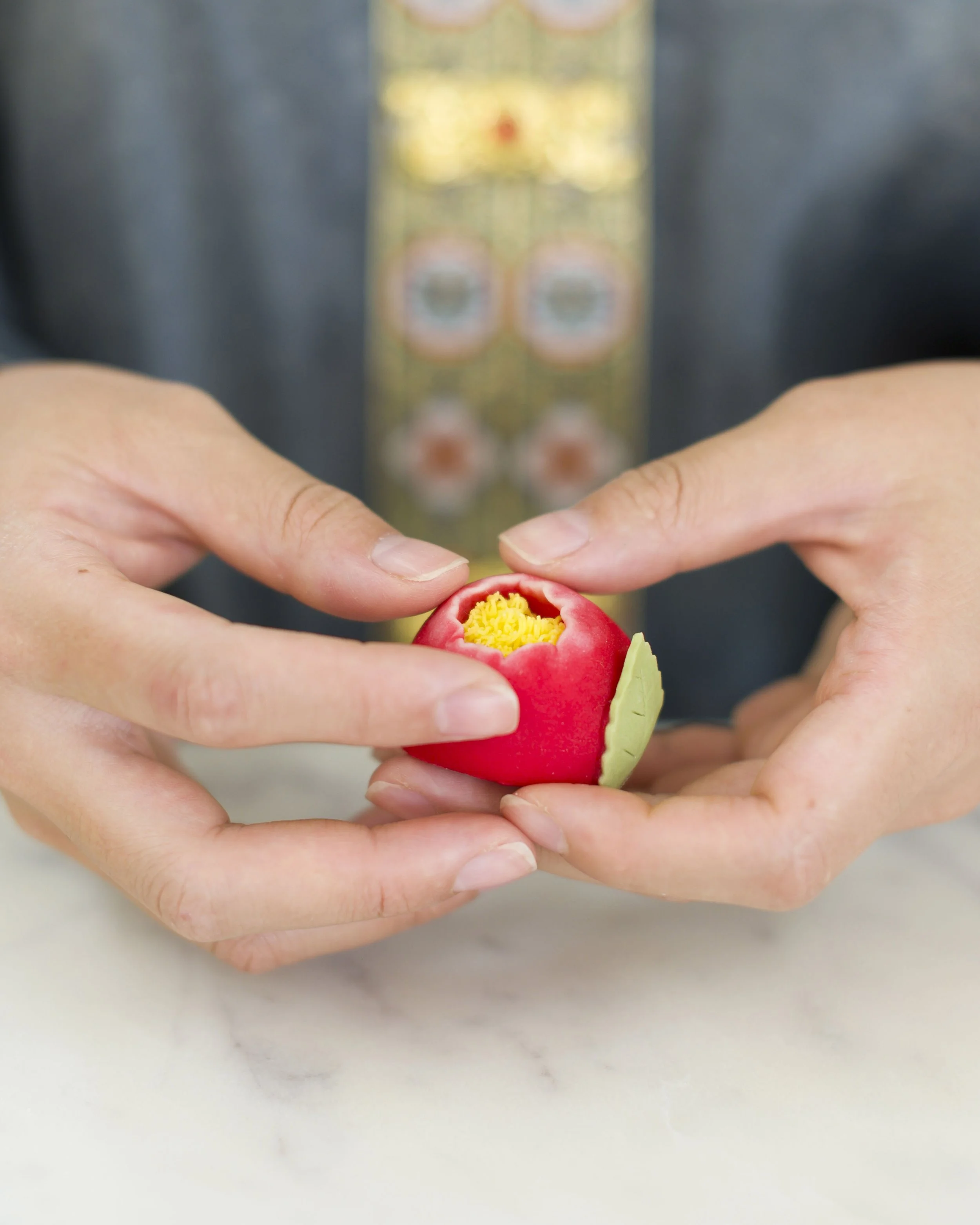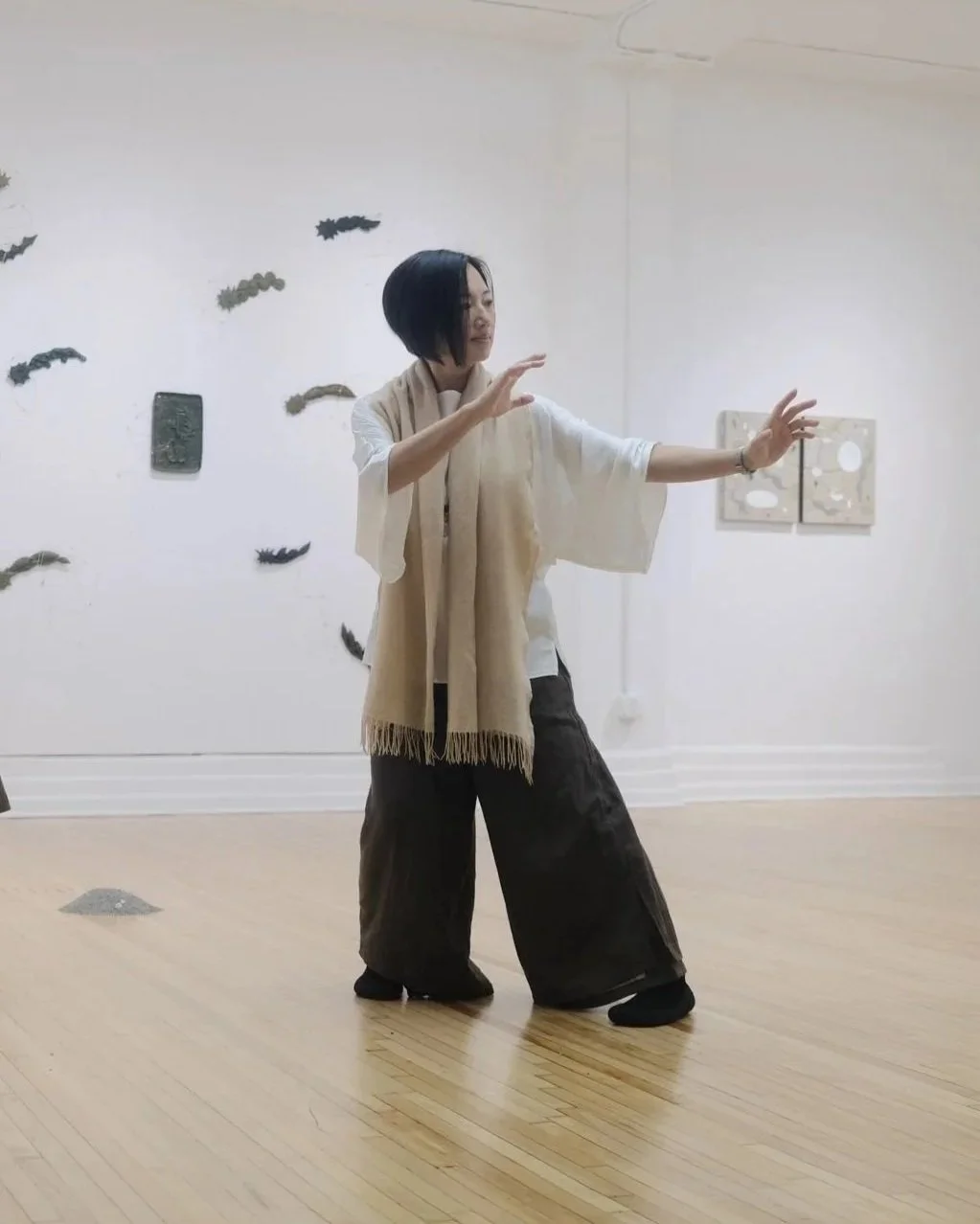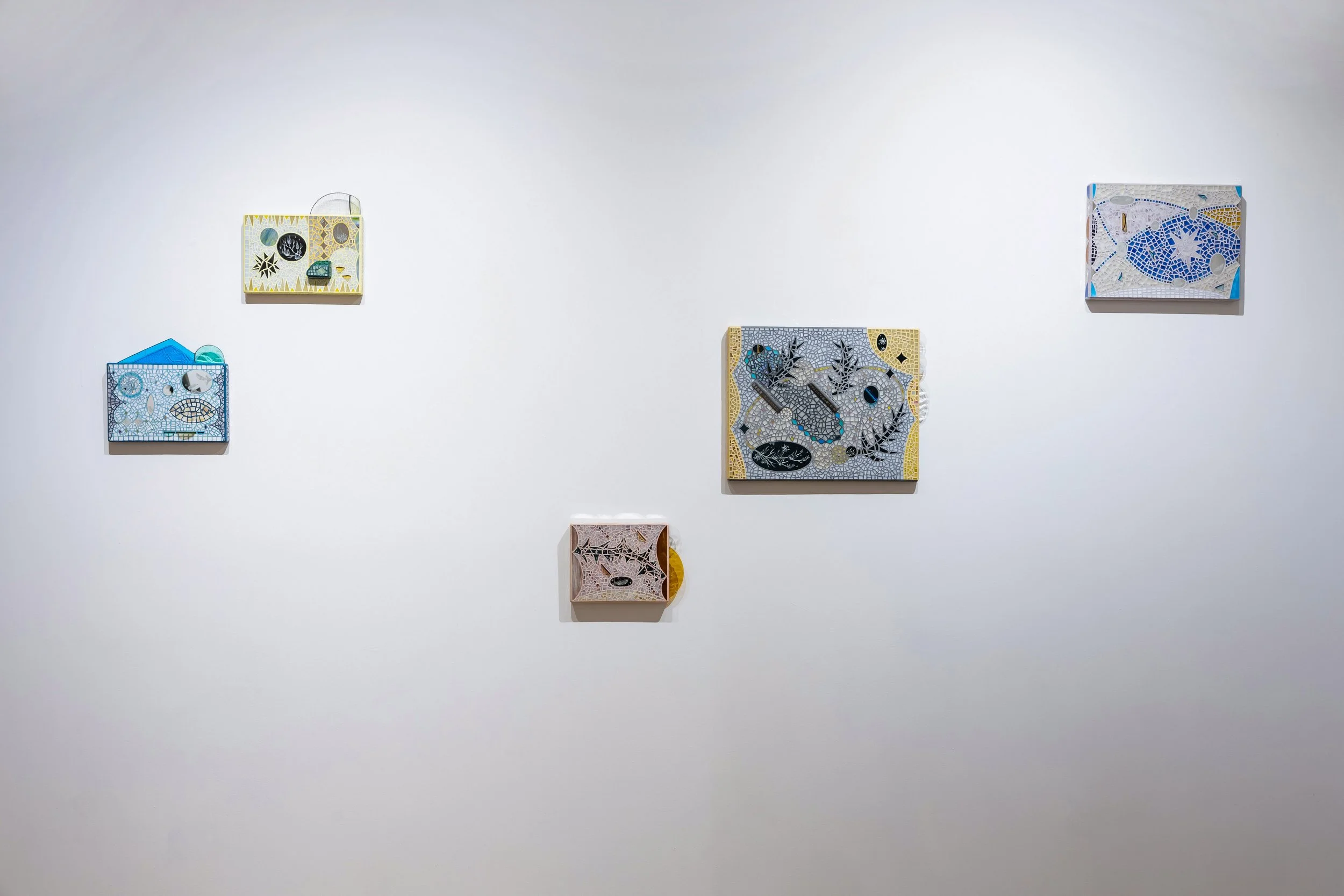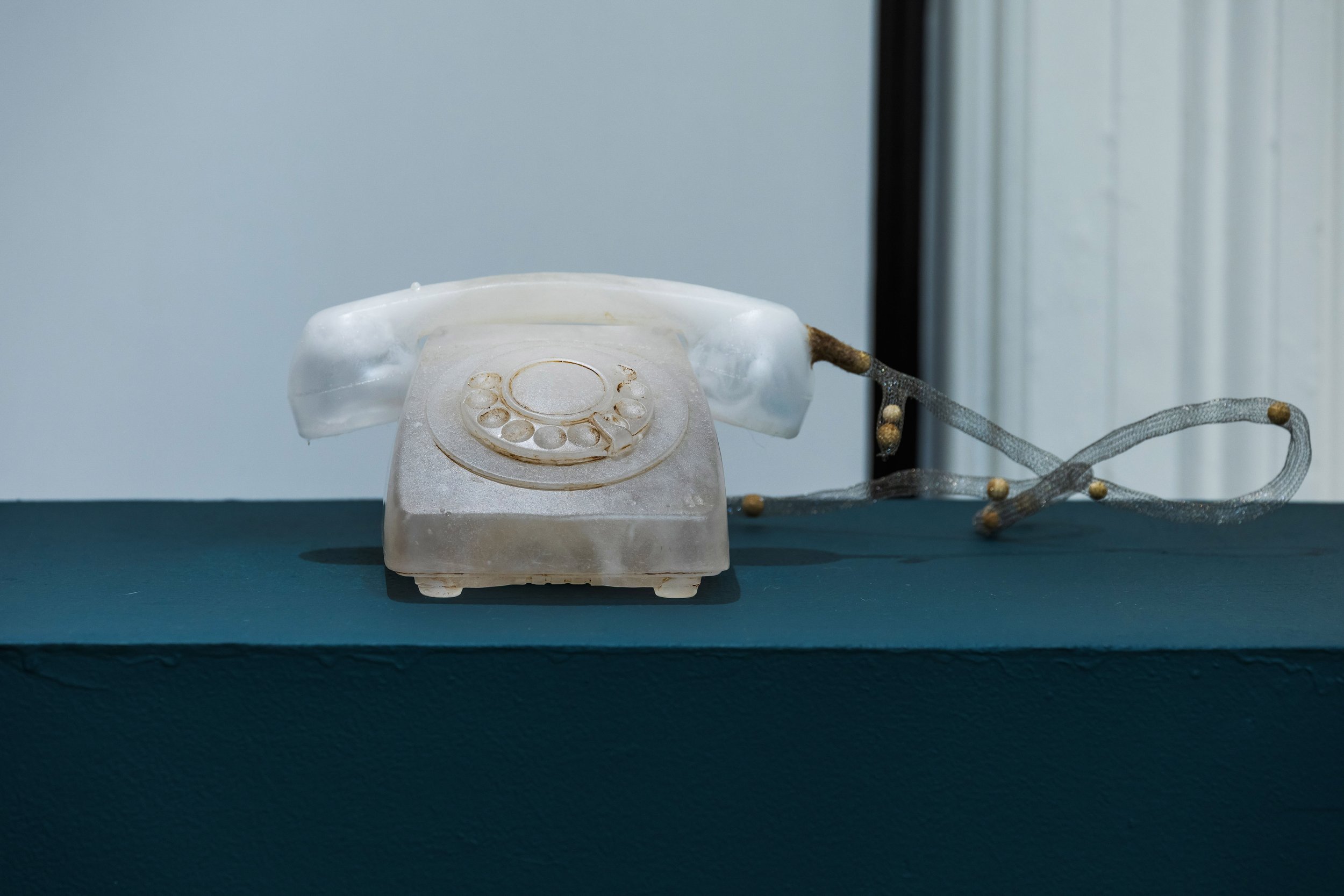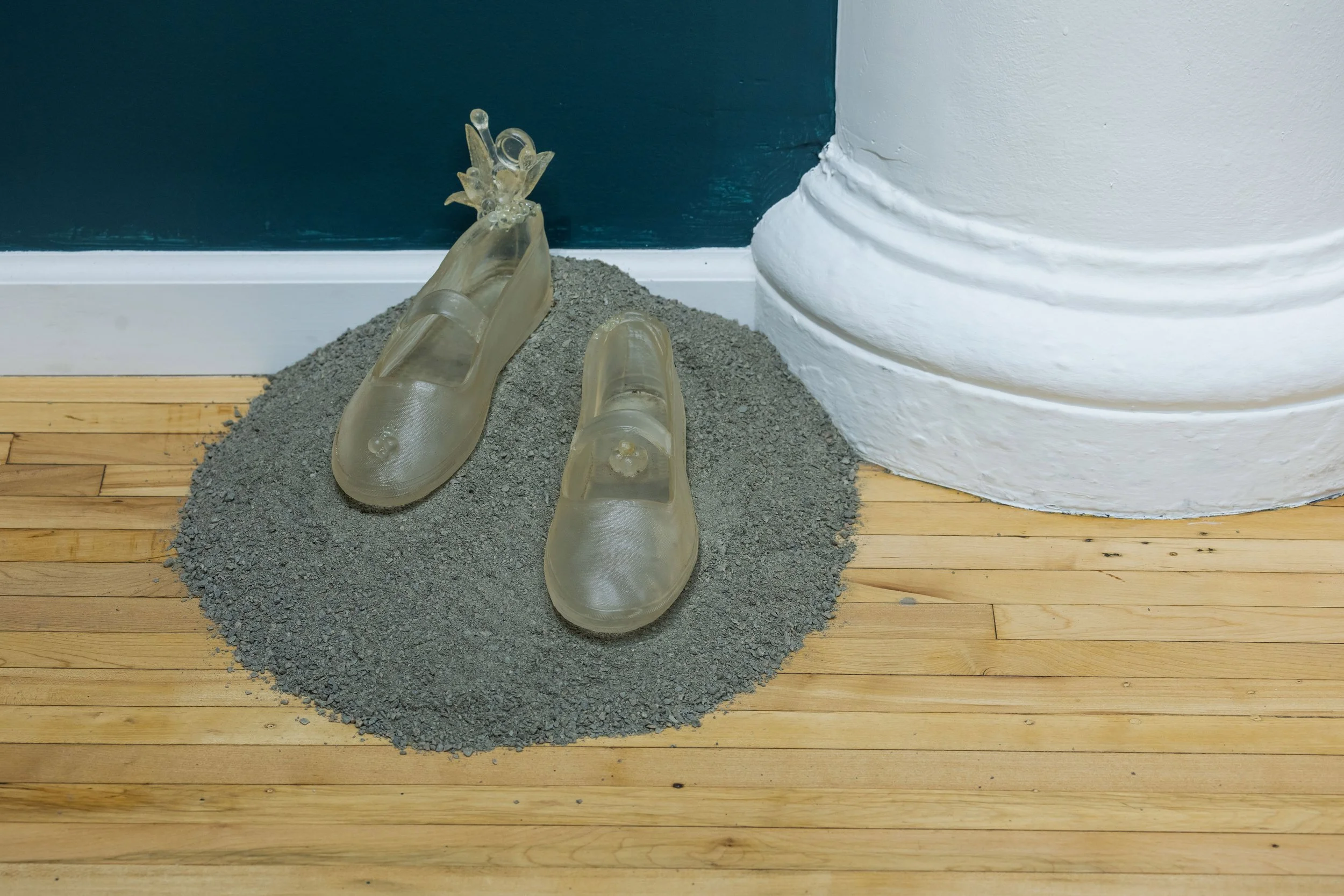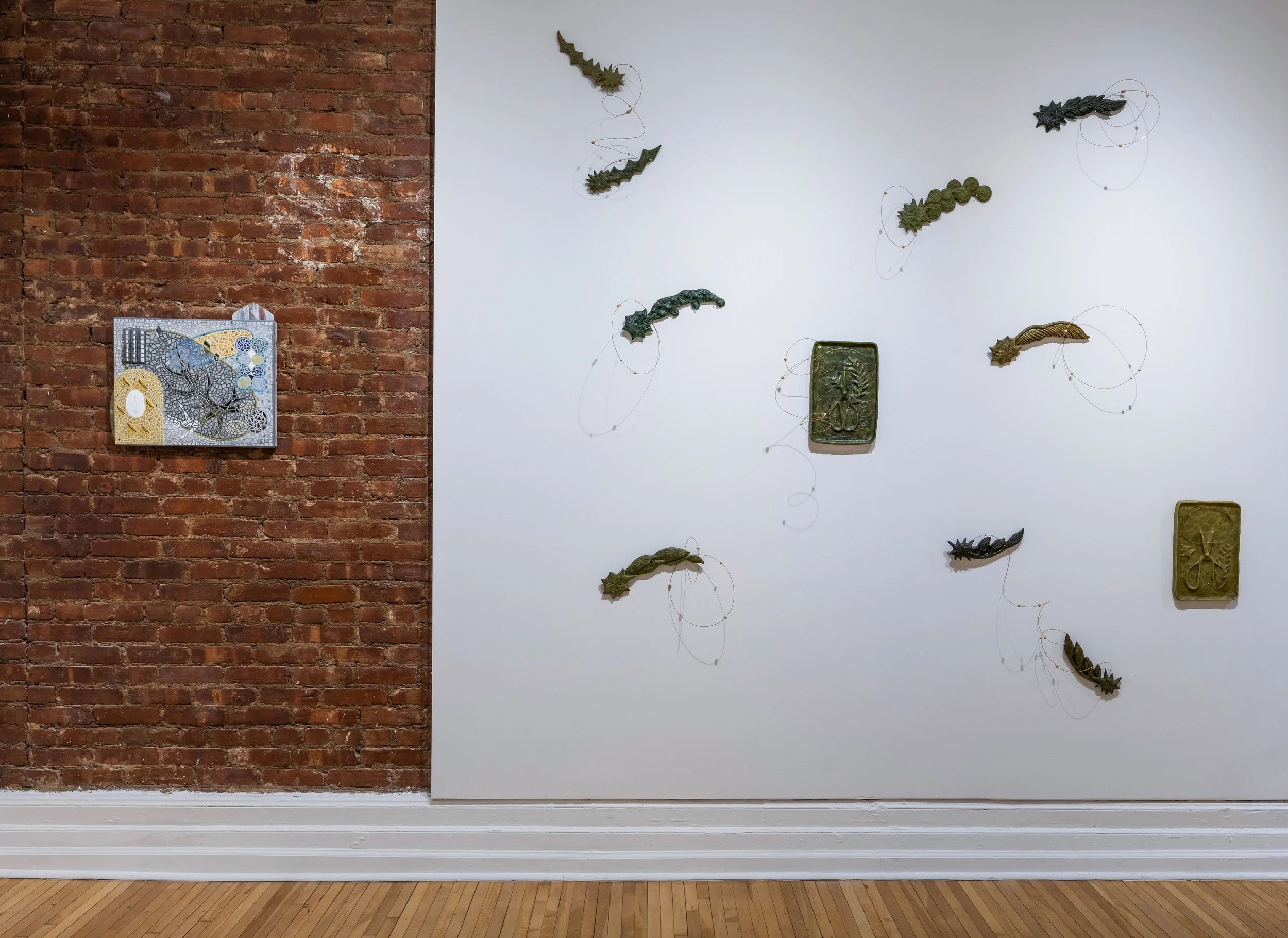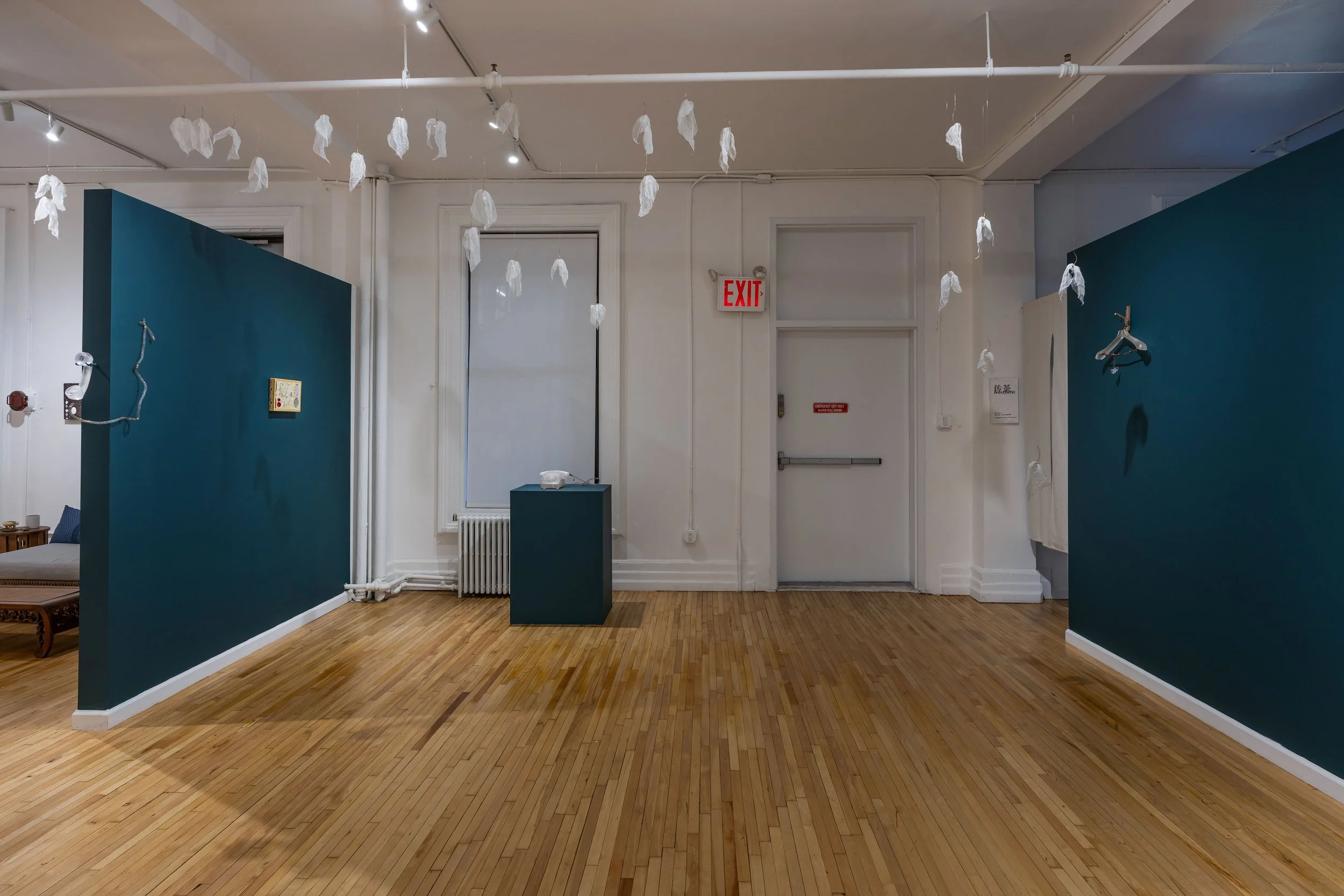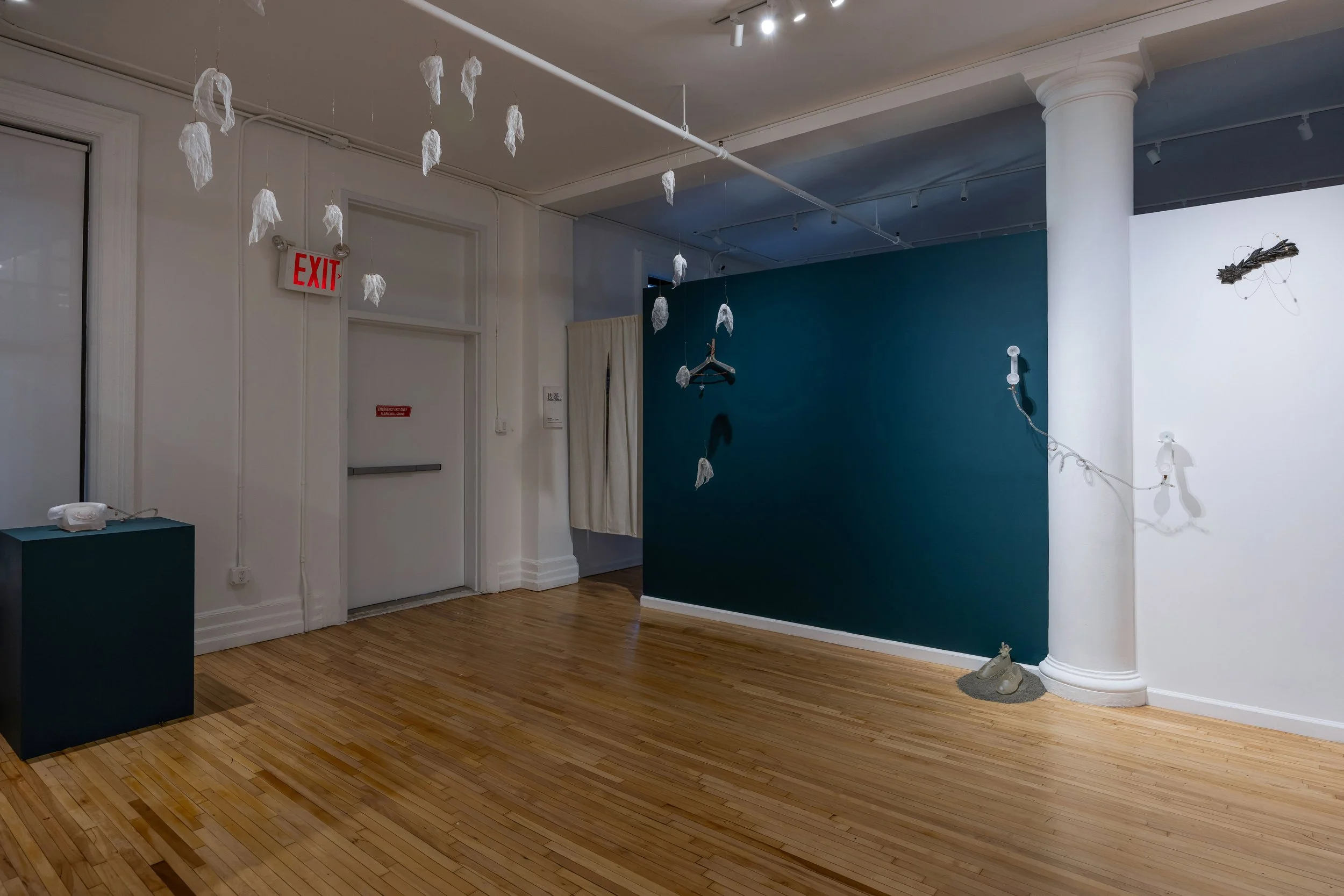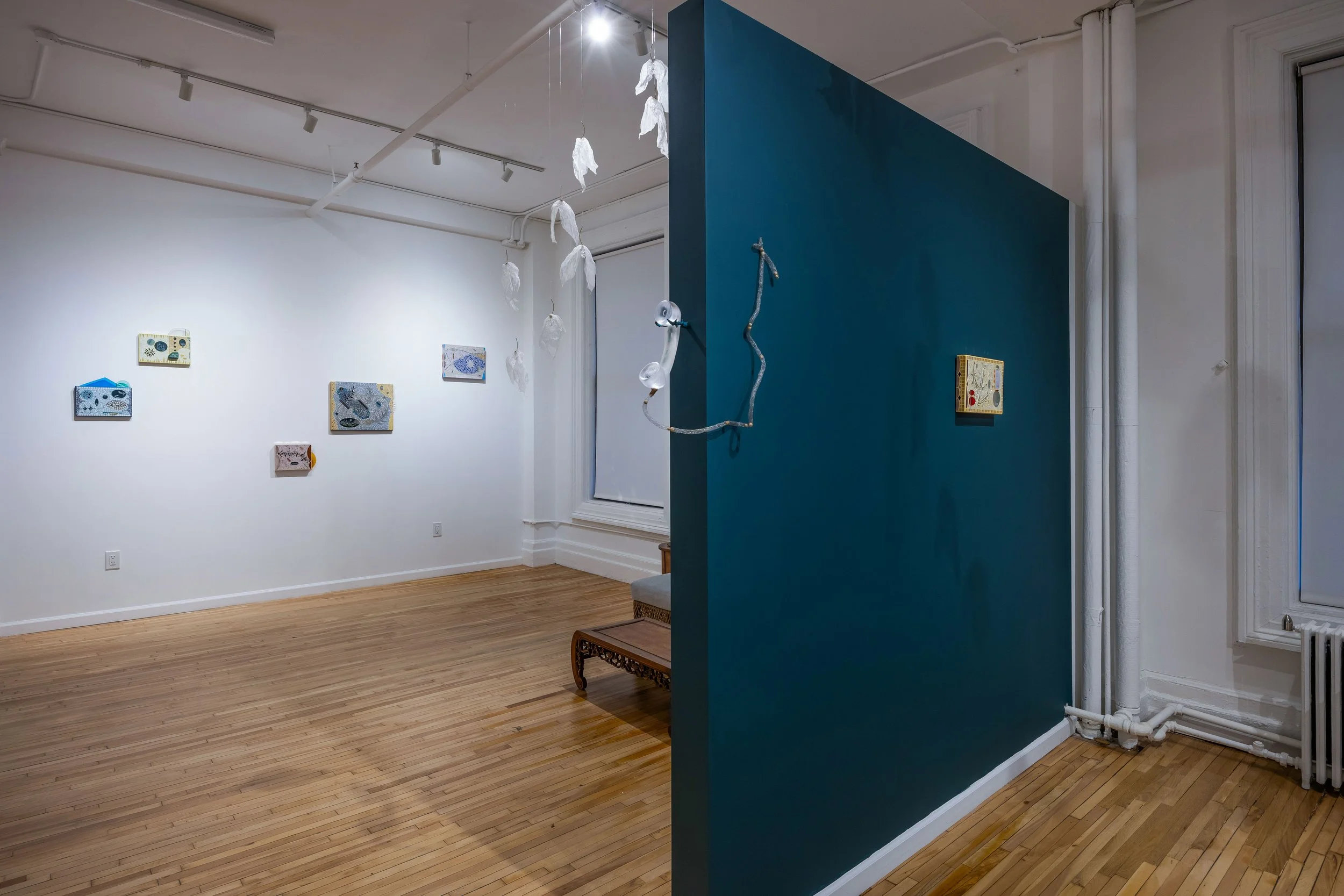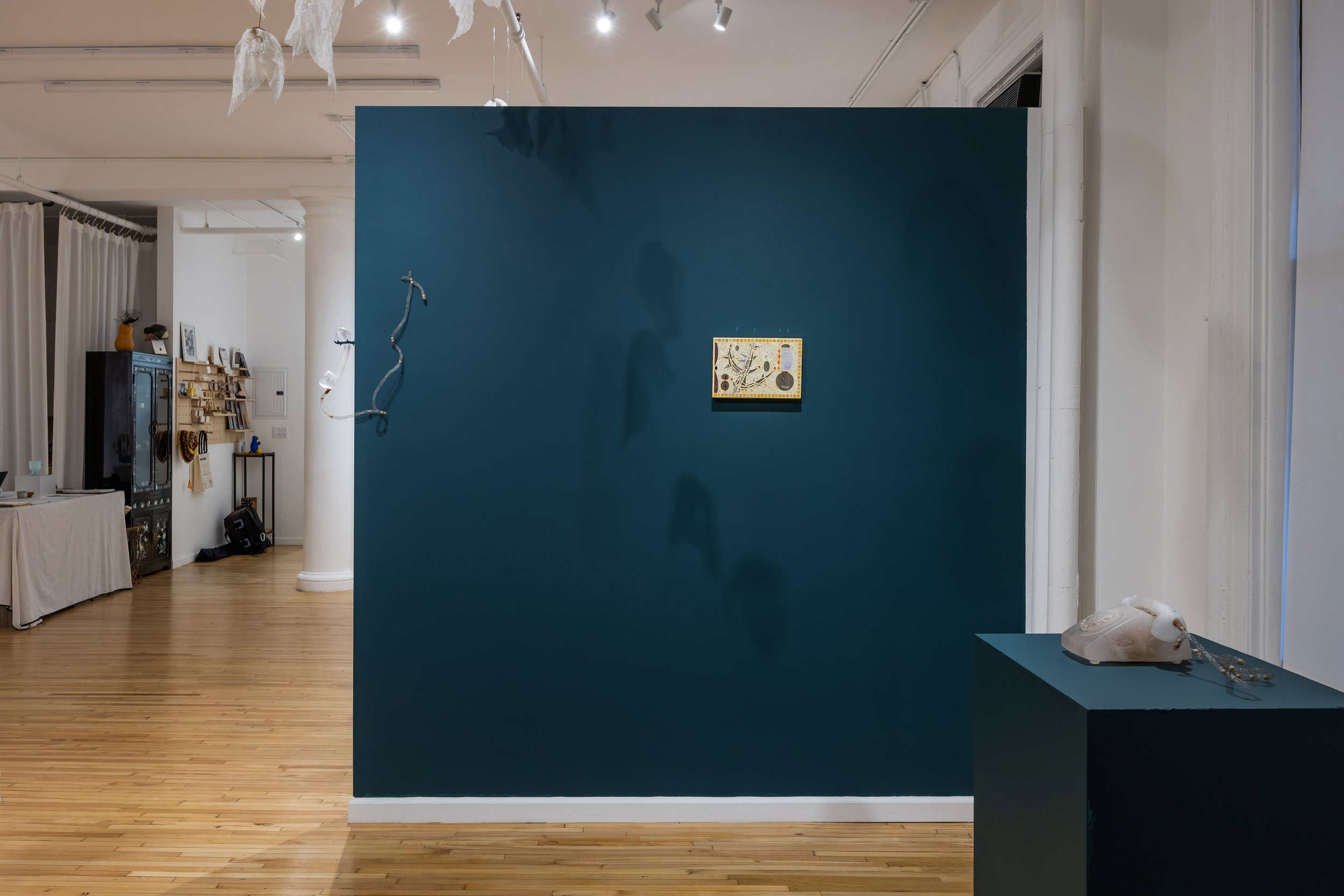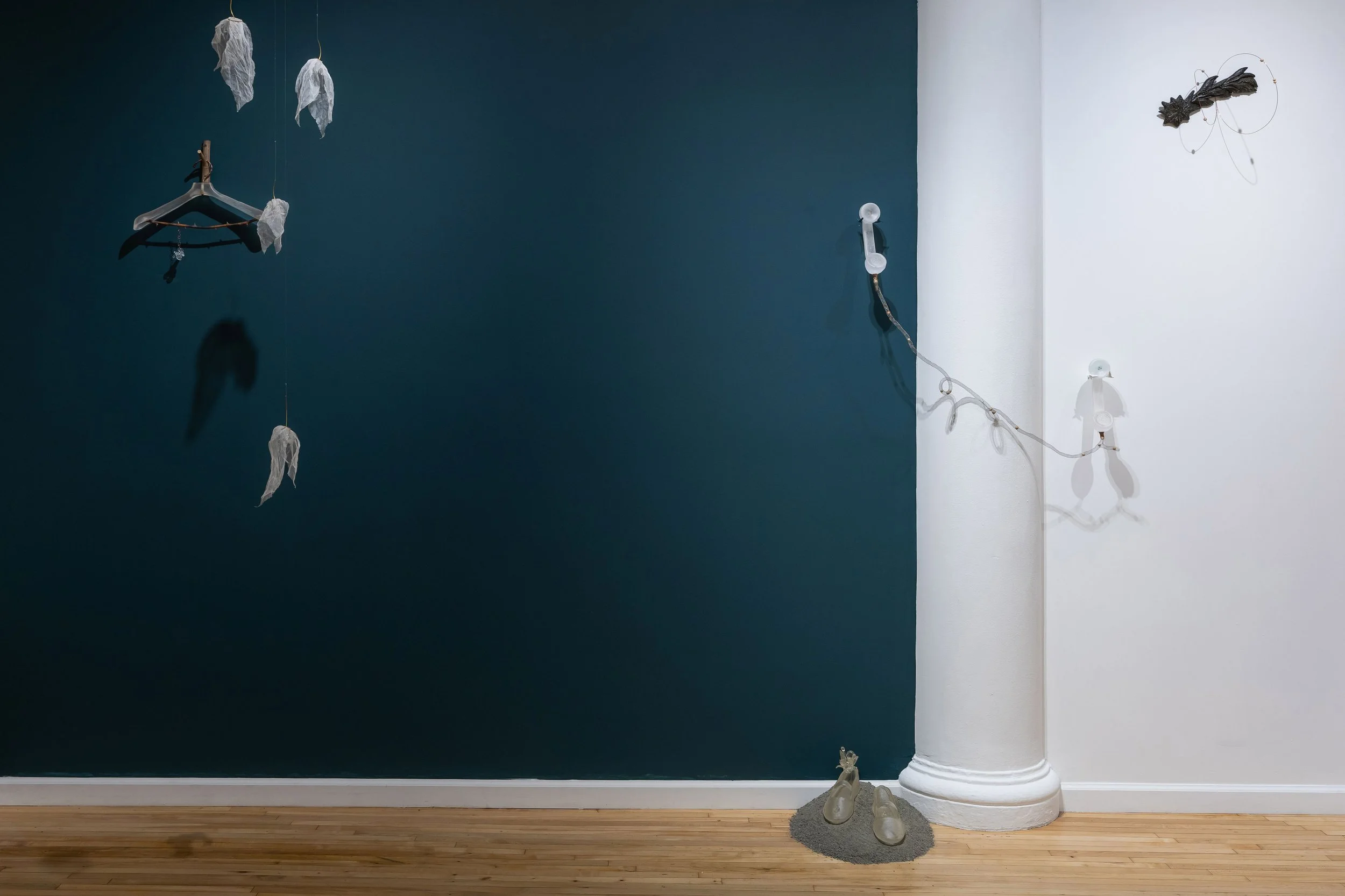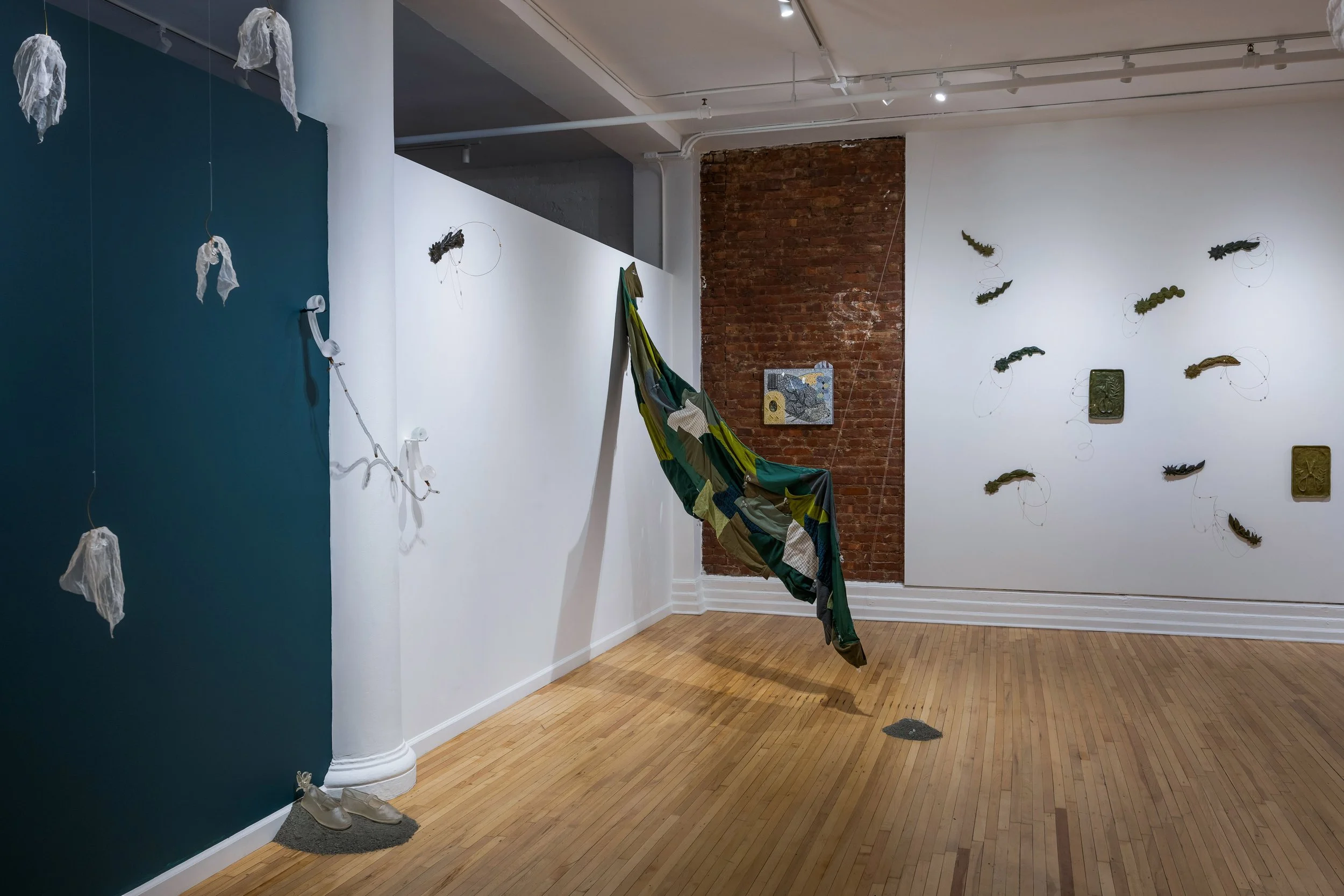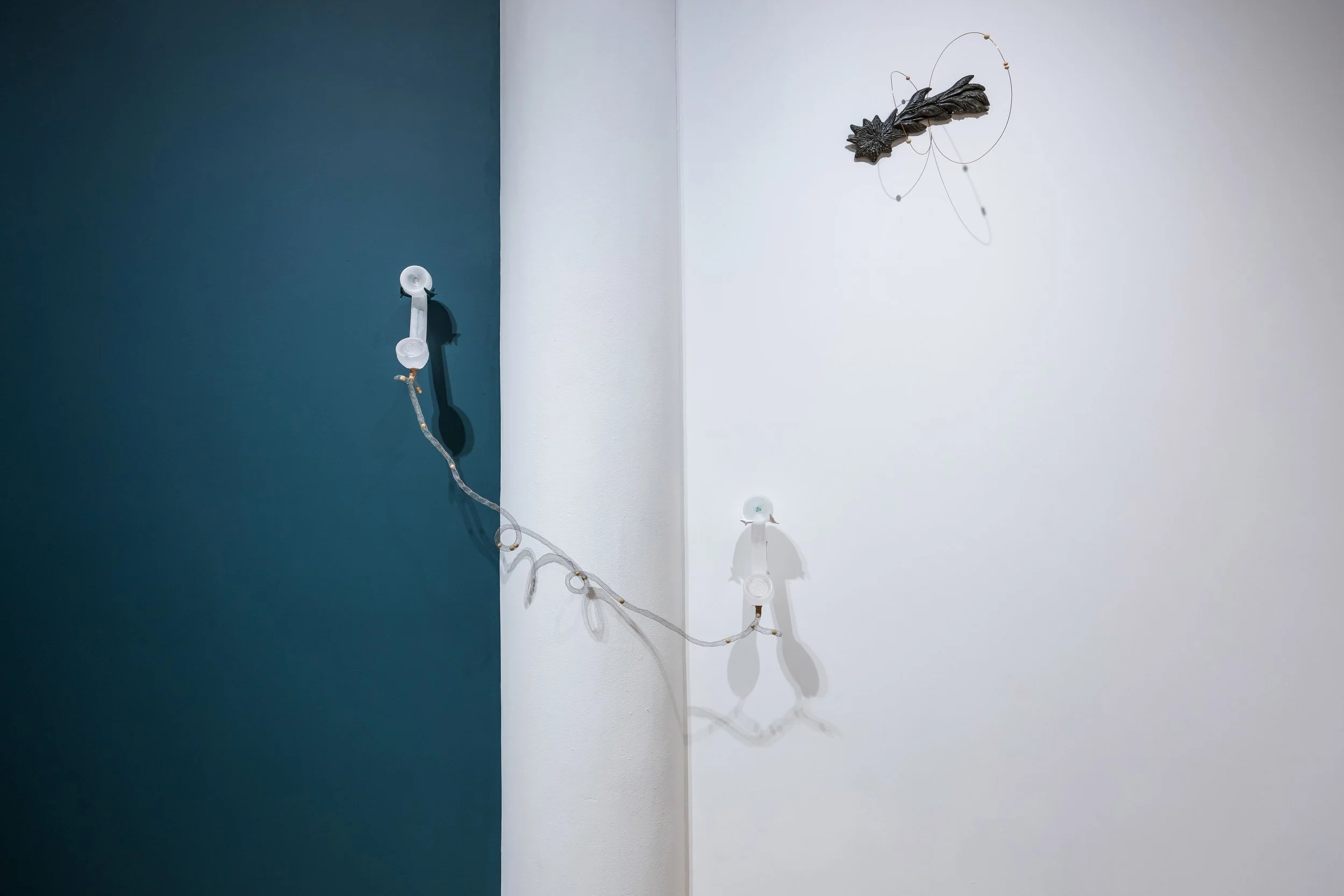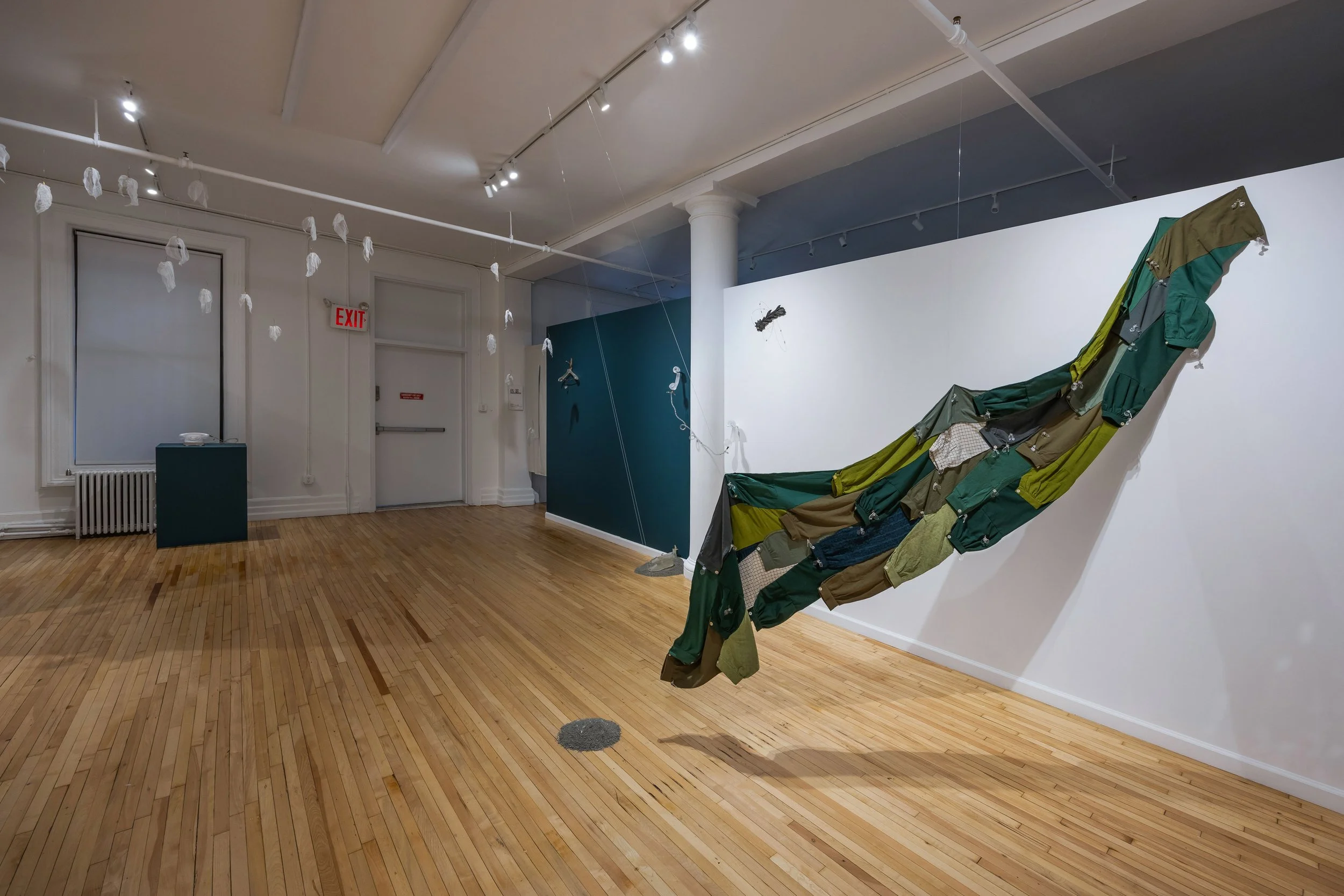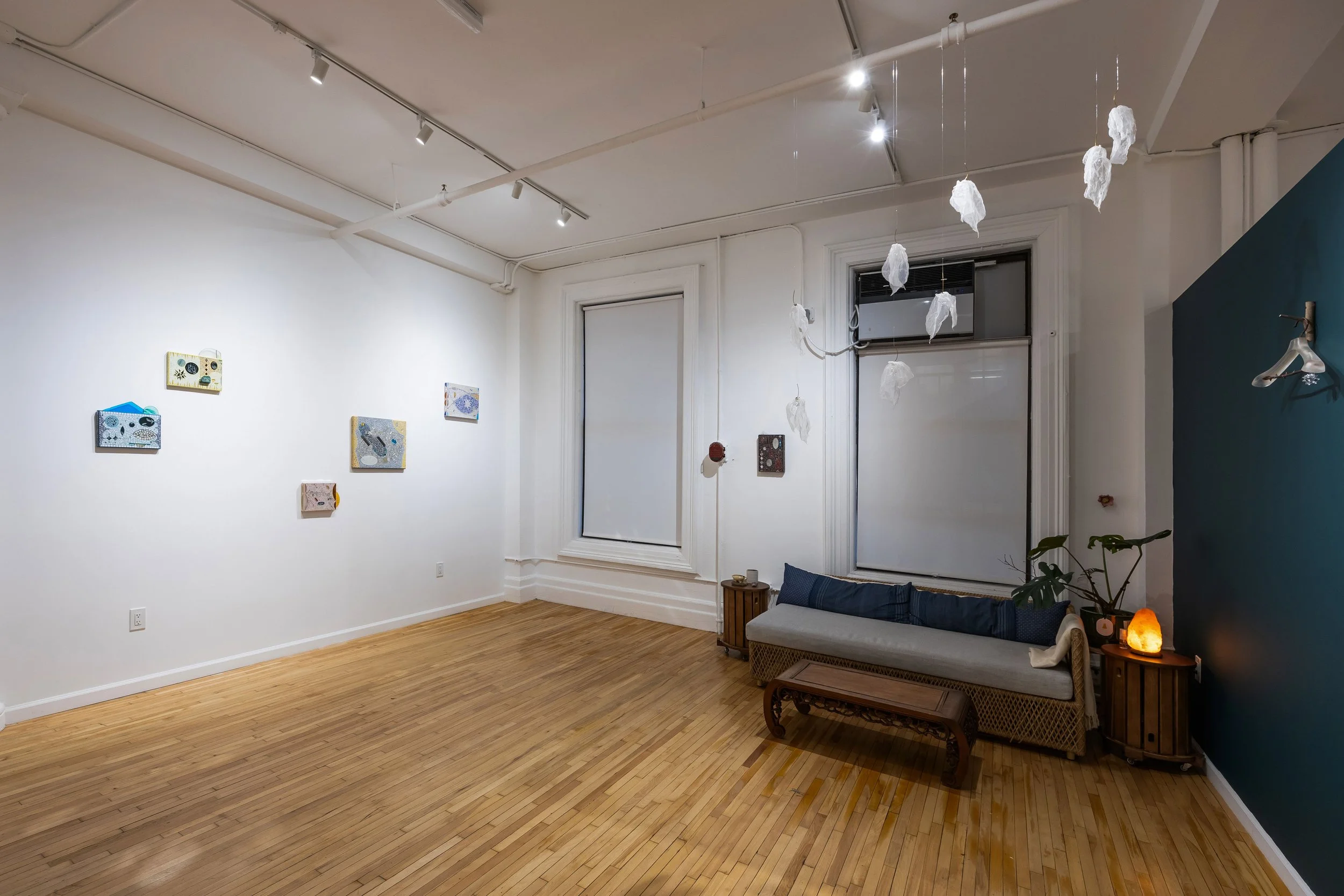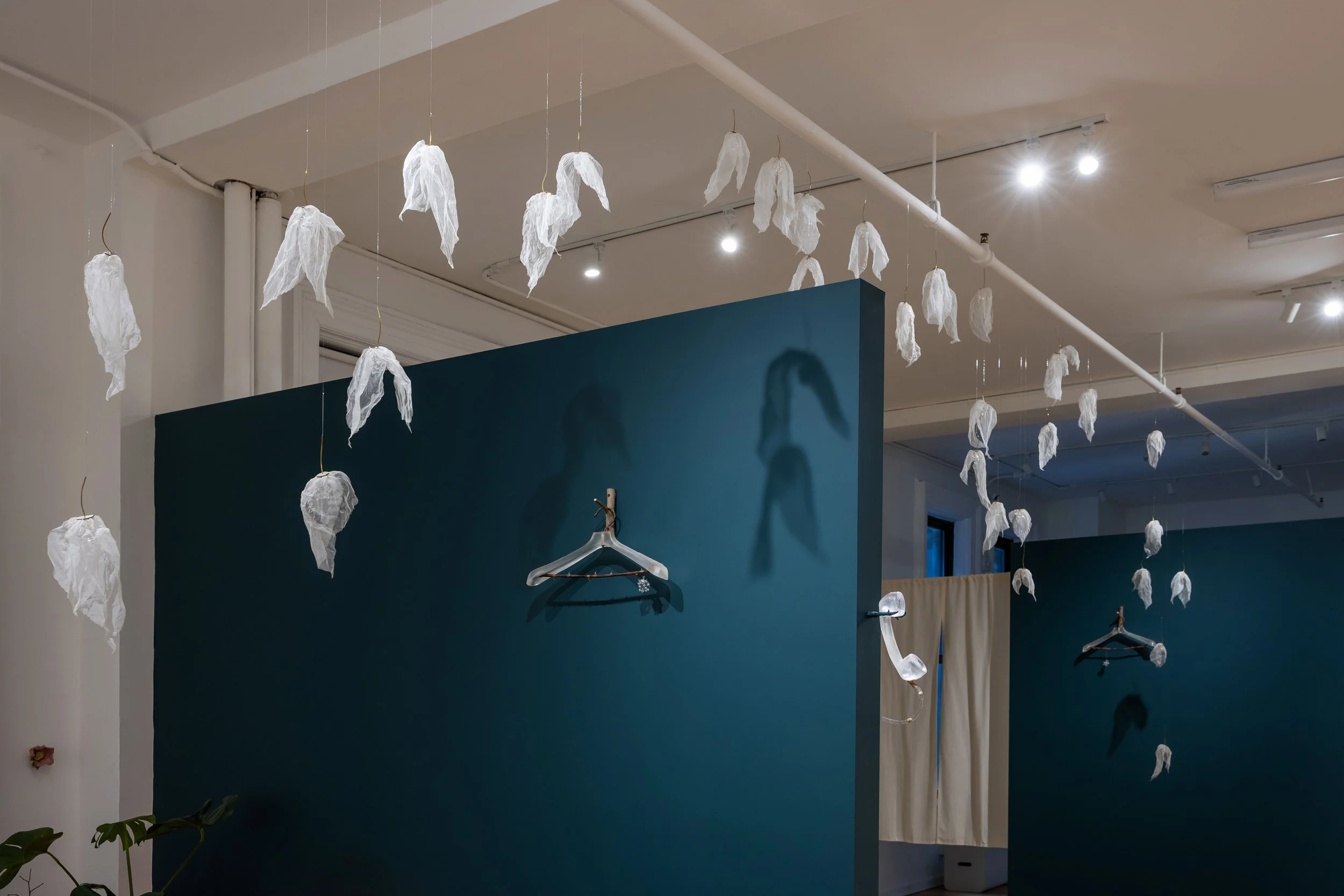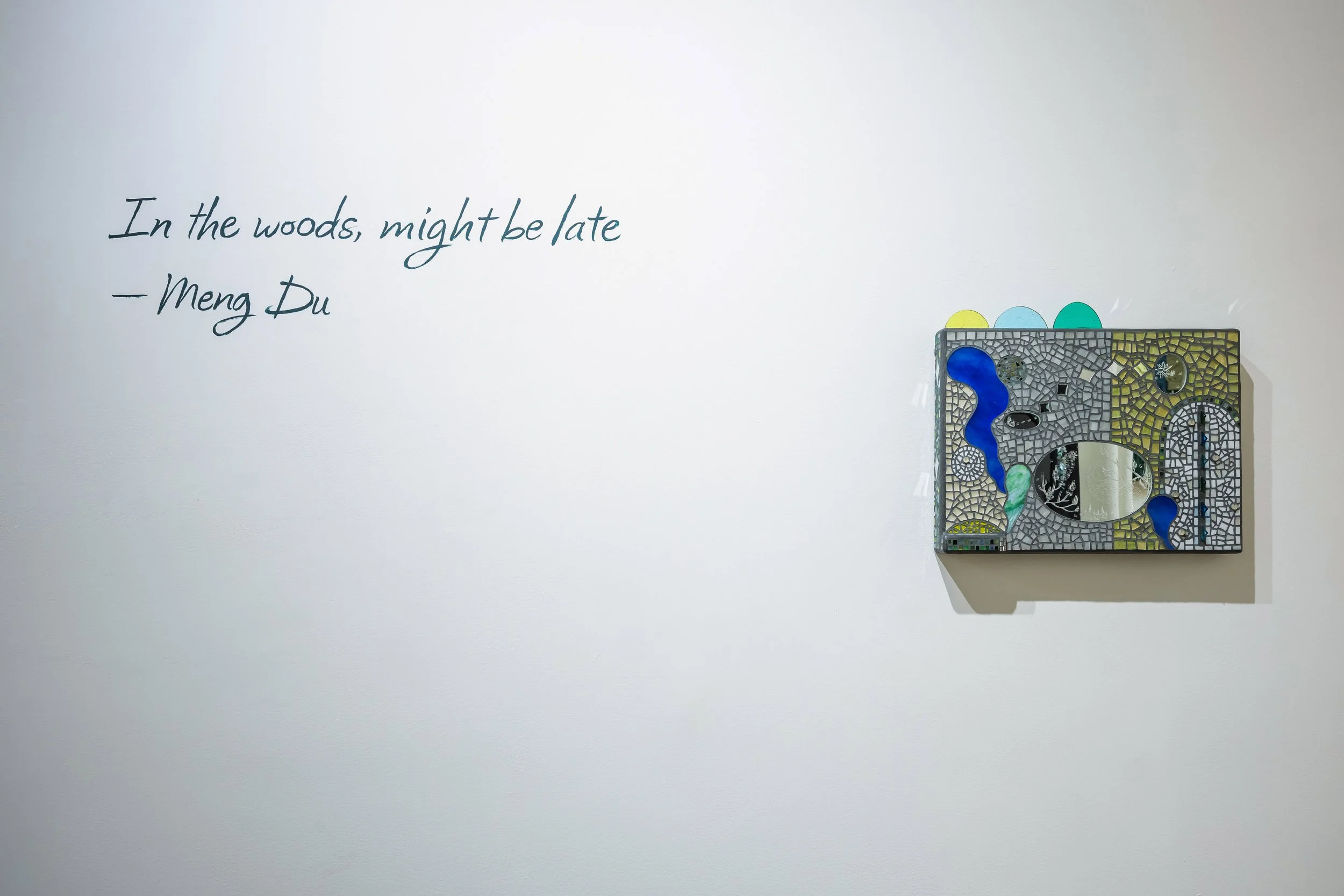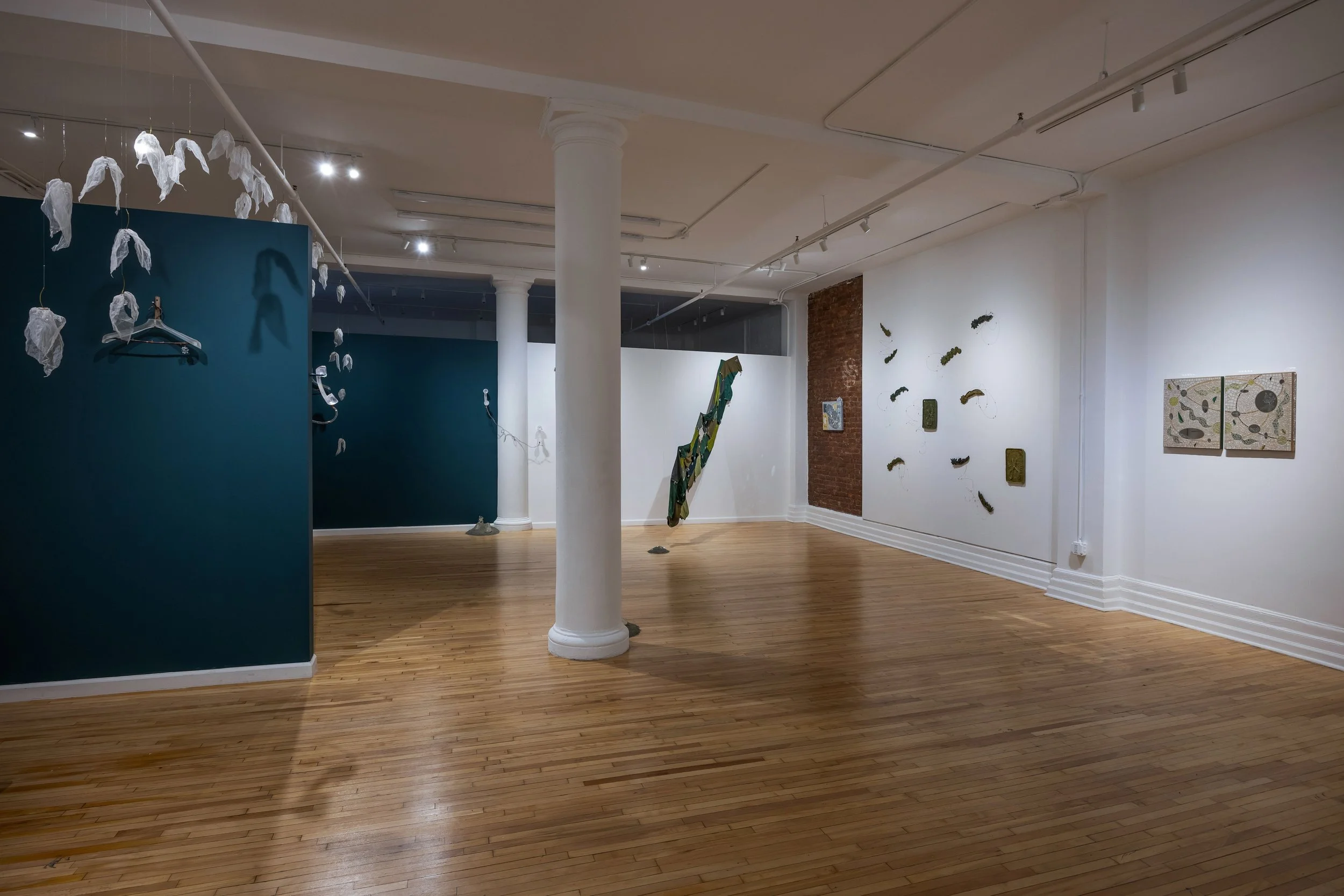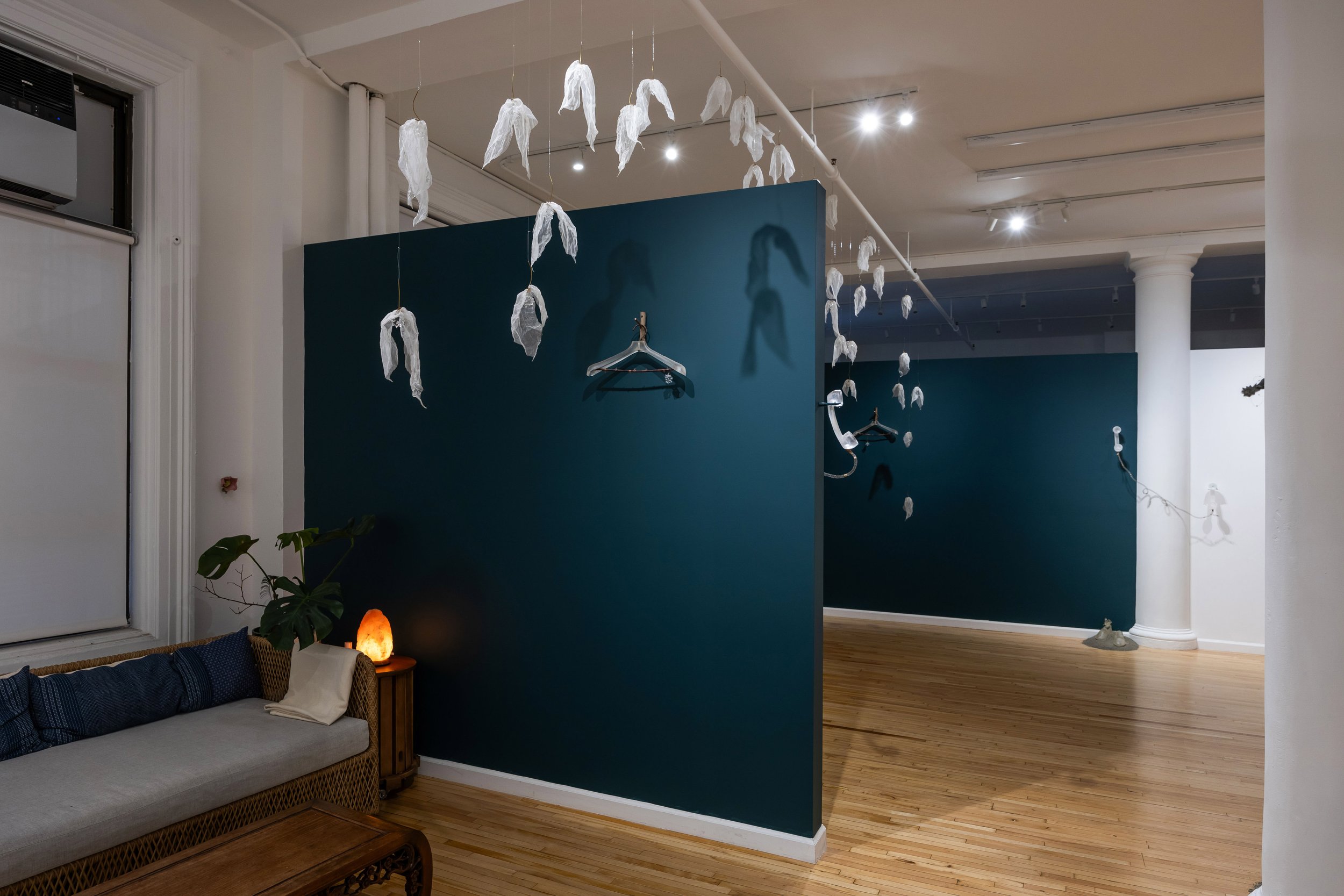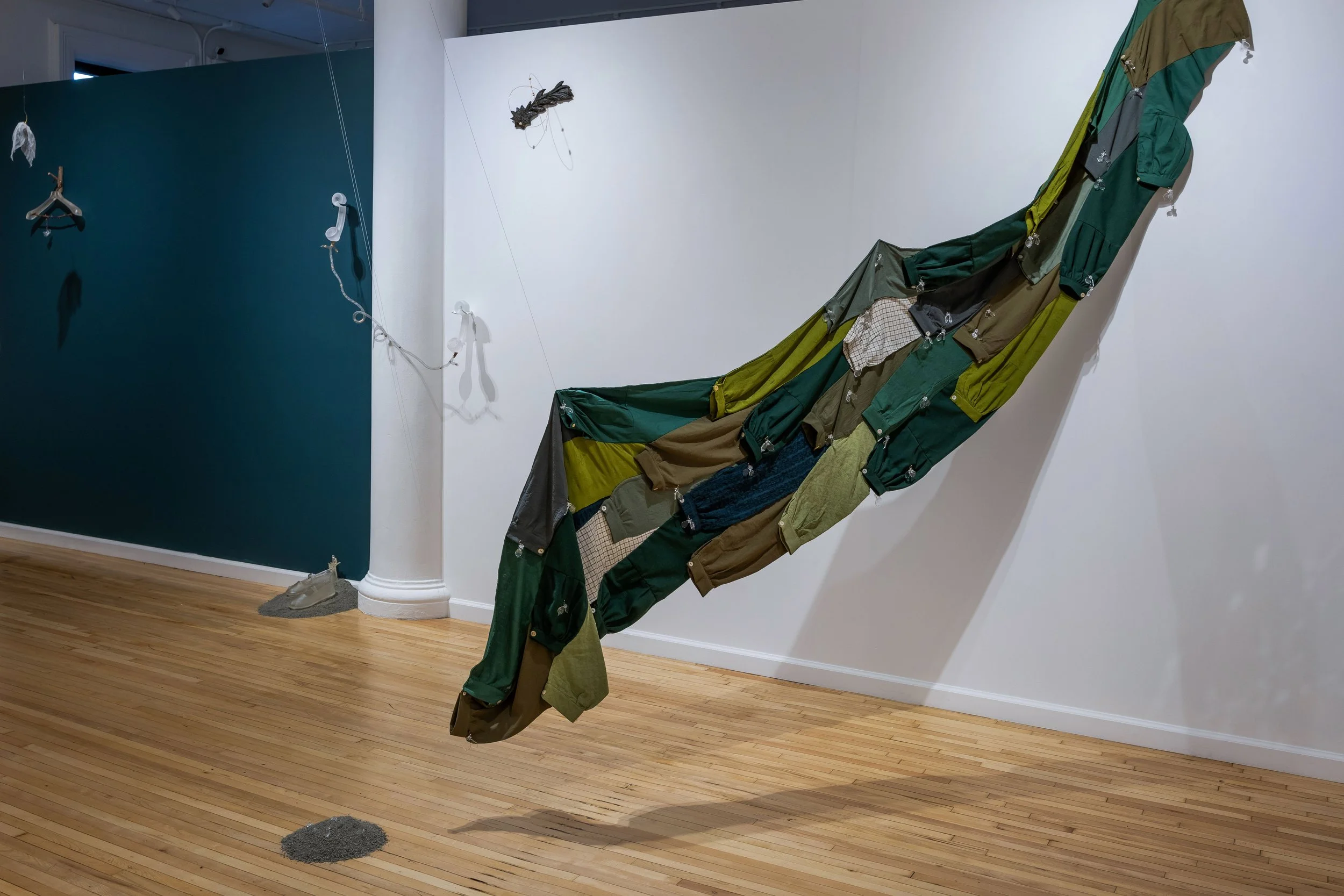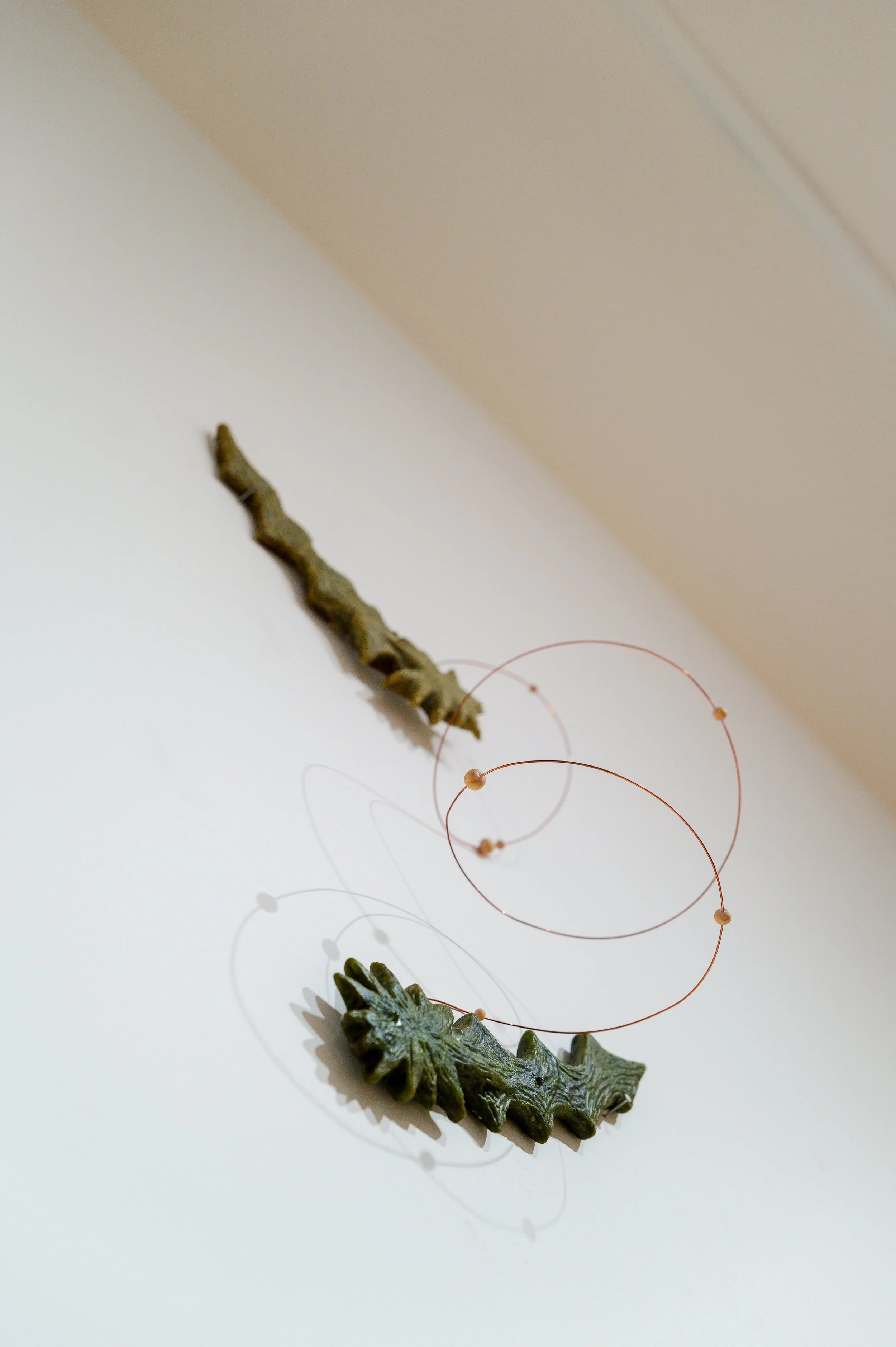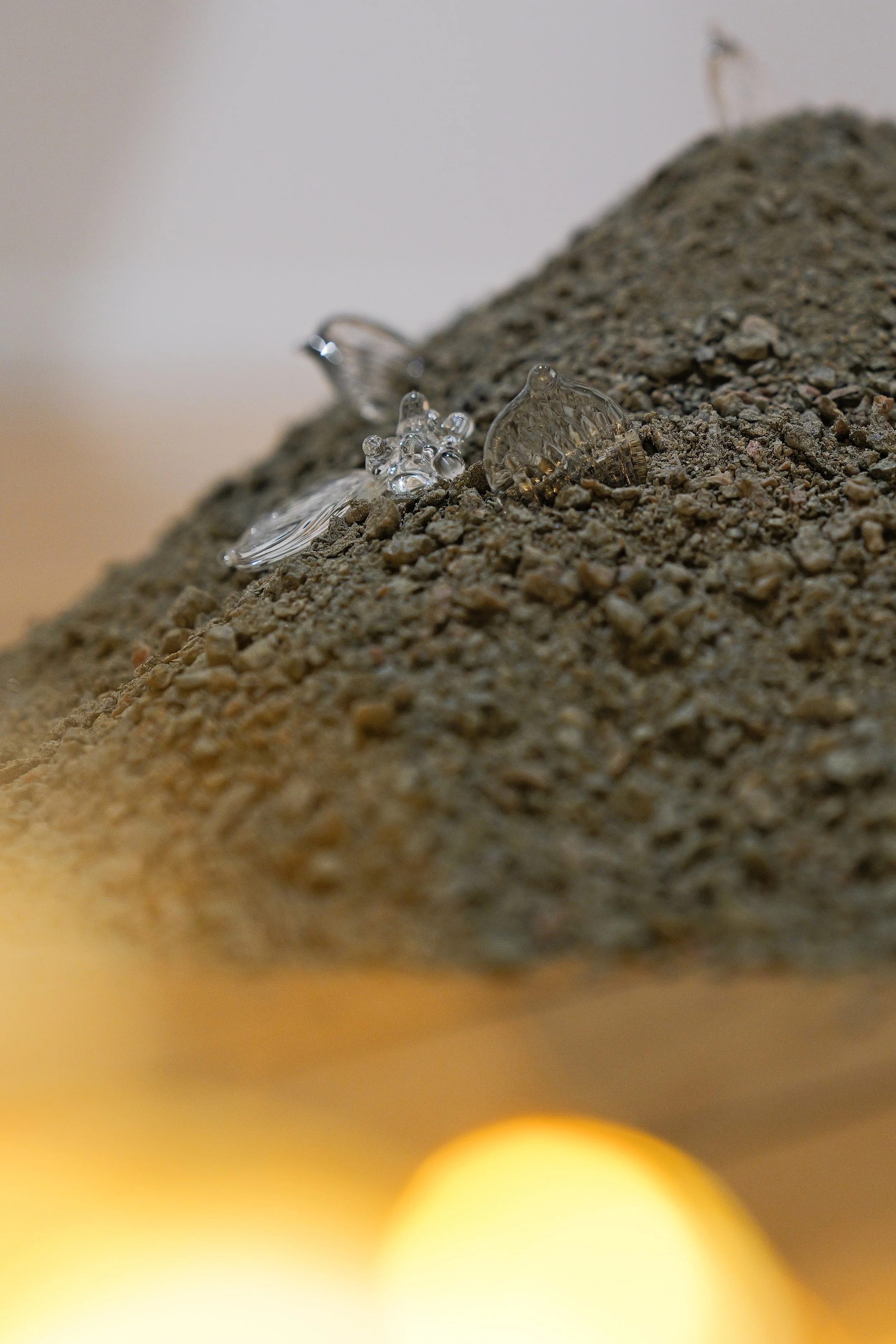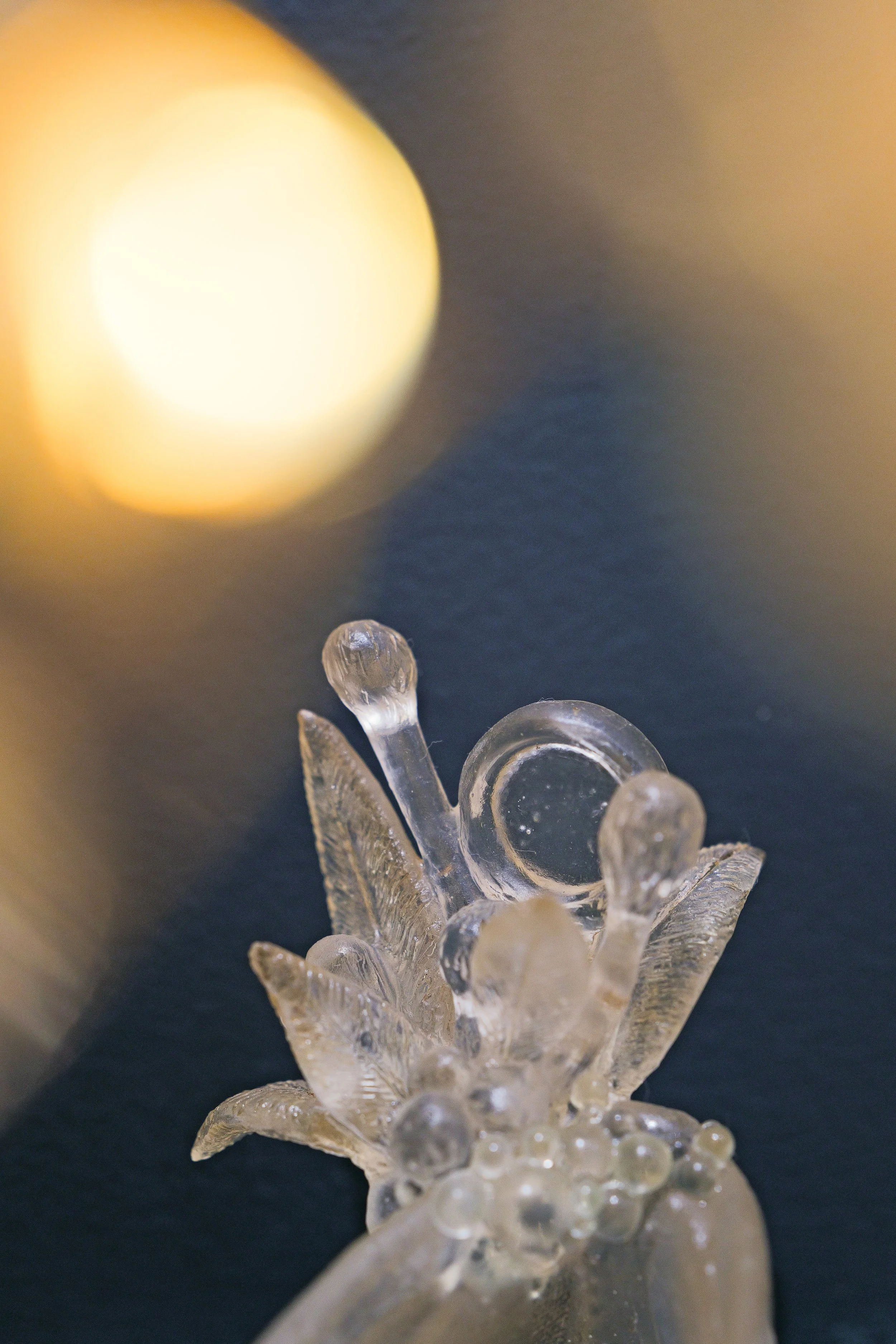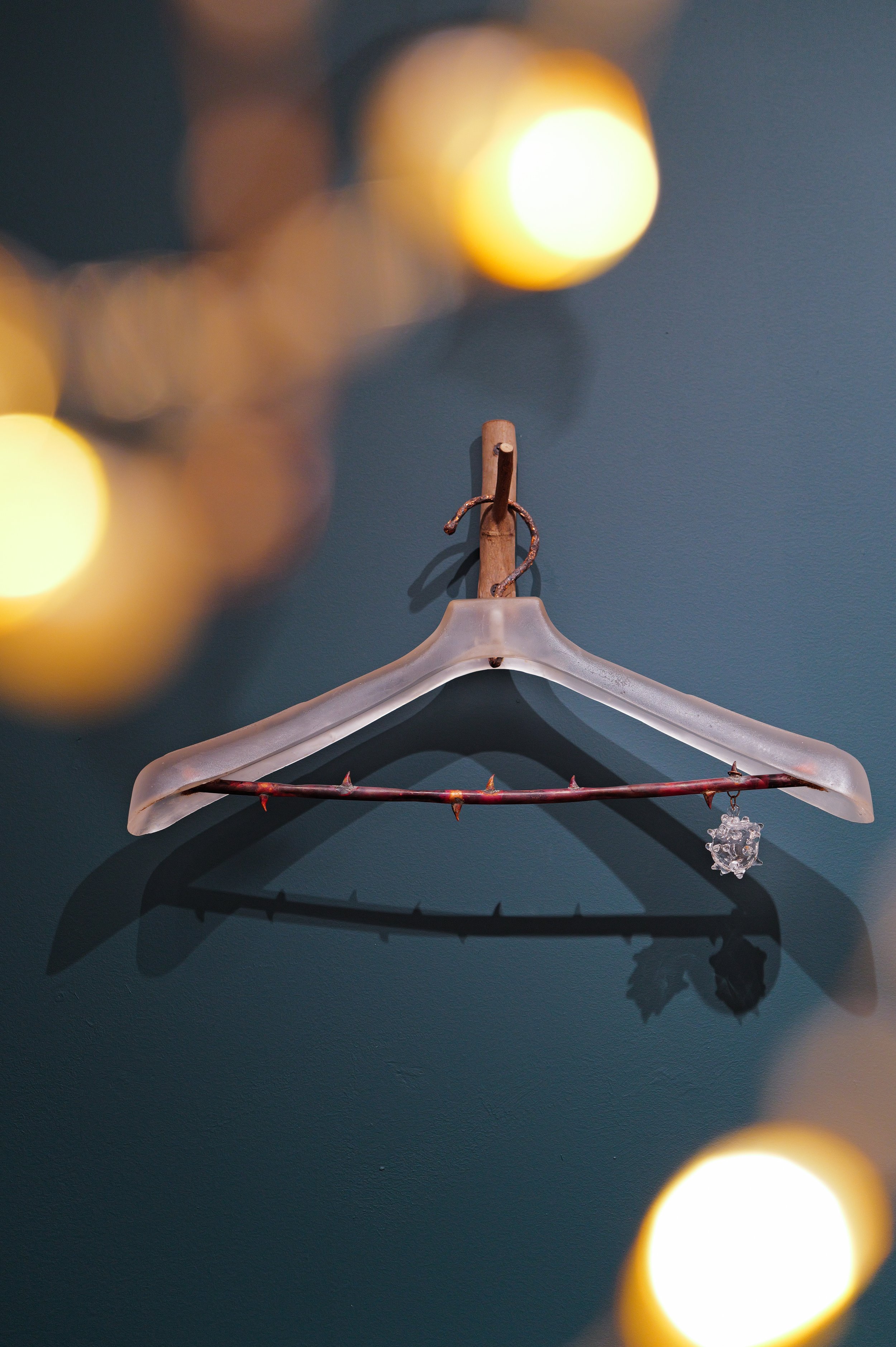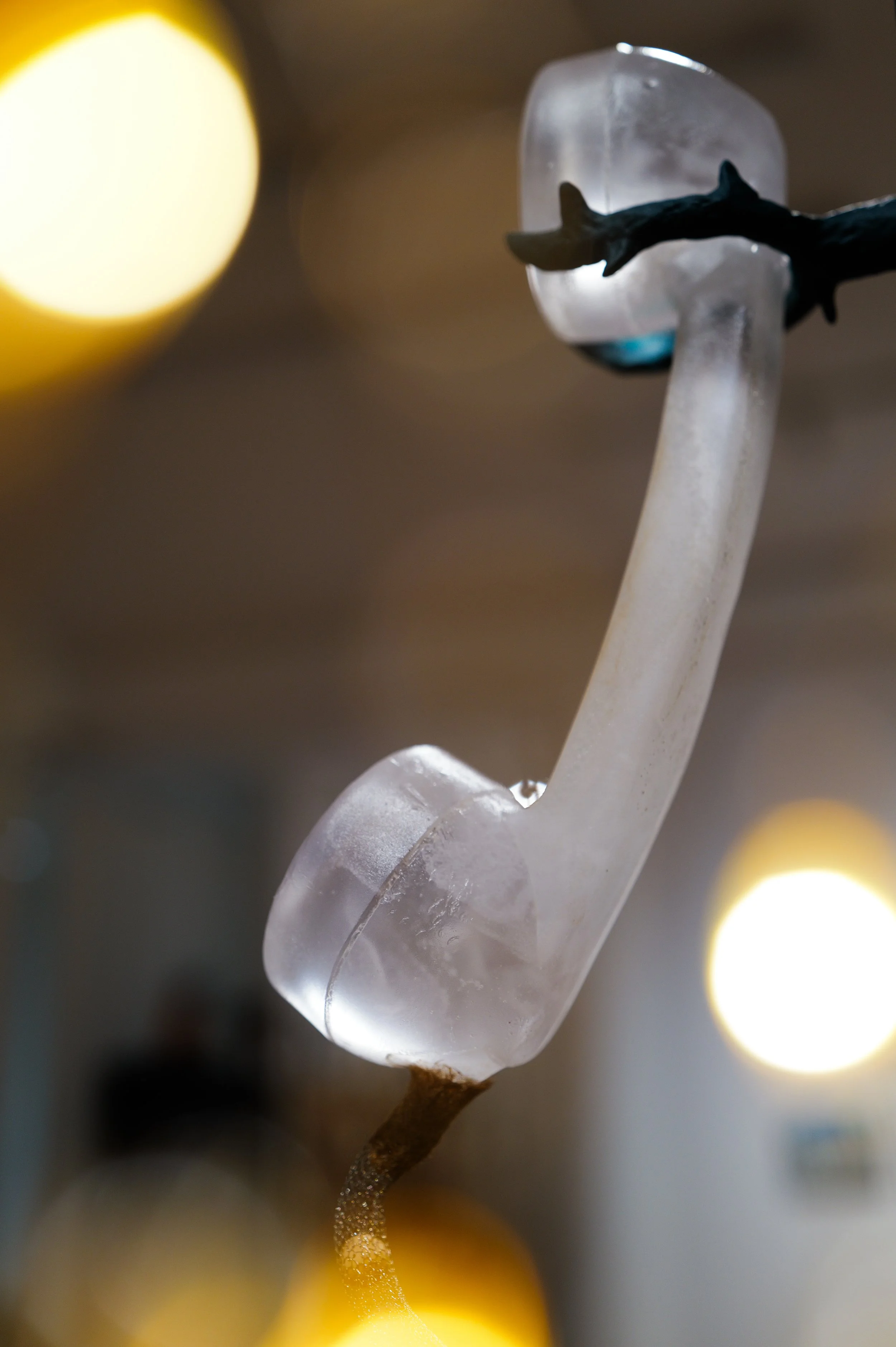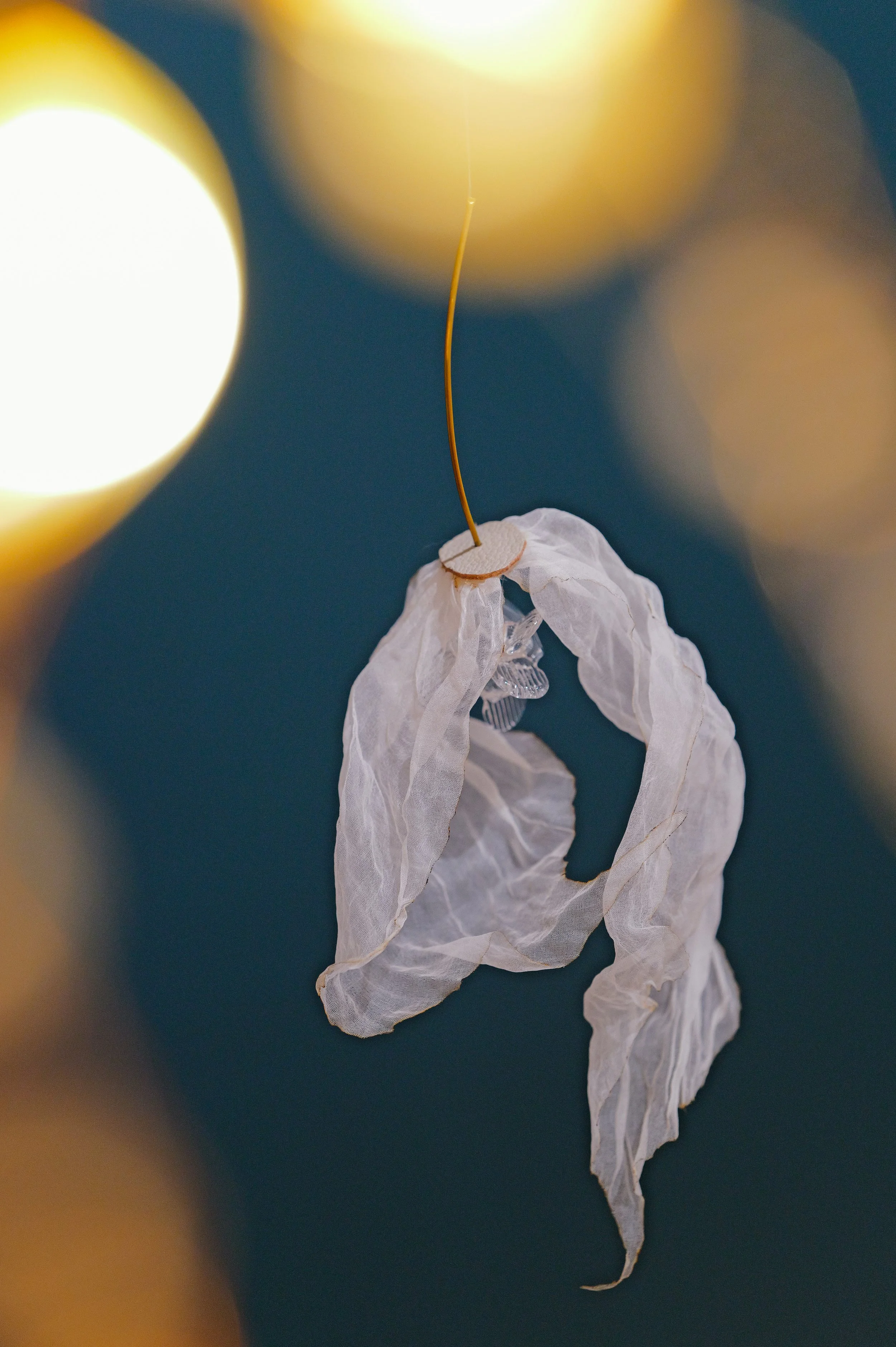In the woods, might be late
Meng Du, Thorns of Light No. 02 (detail), 2025. Glass, Mirror, Wood, Cement-Based Grout, Cement Pigment, Acrylic Paint, 20.5 × 18.5 × 1.8 inches. Photo by Lynn Hai
Selected Works
Thorns of Light No. 01, 2025. Glass, Mirror, Wood, Cement-Based Grout, Cement Pigment, Acrylic Paint, 20.9 × 15.9 × 2 inches.
All That Is Cut Away Becomes Constellations - Preface, 2025. Kiln-Worked Recycled-Bottle Glass, Tea, 12.8 × 8.7 × 1.2 inches.
All That Is Cut Away Becomes Constellations - No. 01, 2025. Kiln-Worked Recycled-Bottle Glass, Tea, Copper Thread, Wood, 10.6 × 2.8 × 0.8 inches (right); 10.6 × 3.3 × 1 inches (left); 17.7 × 20.5 × 5.9 inches (pair as group with copper wire).
A Call From... No. 02, 2025. Kiln-worked Glass, Stainless Steel Mesh, Wood, Mixed-media, Tea, 16.5 × 8.3 × 2.6 inches.
We Are the Coming Forest No. 02, 2025. Fabric, Glass, Metal Parts, Found Object, 33.5 × 35.4 × 1 inches.
Forked Pathway (Clockwise), 2024. Kiln-worked Glass, 10.6 × 7.1 × 4.9 inches.
In the exhibition In the Woods, Might Be Late, artist Meng Du reflects on how the life of her garden has quietly reshaped her perception. Presented at Fou Gallery in New York and curated by Sharon Xiaorong Liu (December 6, 2025–February 22, 2026), the exhibition borrows its title from Peter Handke’s documentary to propose a slower and more humble mode of coexistence with botanical life. Through the light, transparency, and fragility of glass, Du gives form to her way of seeing plants, an imperfect imagination that can never fully grasp their alterity, yet one she refuses to abandon. She tends without denying control, imagines without claiming understanding, working slowly through trimming, tending, casting, and shaping.
The story starts with, according to Meng Du’s naming traditions, “The Beard” (pulsatilla), “Little Barberry” (Japanese barberry that ambushes humans with their thorns), and “Lazy Big Brother” (a rose bush that never blooms) in her garden. Naming is her first step toward building a relationship with botanical life, not taxonomy but a recognition of mutual influence...
Video shot and edited by Jackie Yunchang Zhang
Relevant Events
Artist
Meng Du (b. 1986, Beijing, China) graduated from the Graphic Design program of the Central Academy of Fine Arts, Beijing (B.F.A.) in 2008 and the Department of Glass and Glass Sculpture Program of Rochester Institute of Technology (M.F.A.) in 2013. Currently, she is living and working in Beijing. Her work has continued to exhibit in China, Europe, and in the U.S.A., including Victoria and Albert Museum, London (2025); Shanghai Museum of Glass, Shanghai (2023); Genesis Foundation, Beijing (2022); Today Art Museum, Beijing (2021); The Delaware Contemporary, U.S.A. (2020); Fou Gallery, New York (2025/2022/2019/2016); Shanghai Museum of Glass, Shanghai (2018) and The International Exhibition of Glass Kanazawa at Shiinoki Cultural Complex, Ishikawa Prefecture, Japan (2016). Meng’s solo show at Fou Gallery (2016) signifies the debut of her artistic career, marking her inaugural solo exhibition. She served as a residency artist at Seto International Ceramic & Glass Art Exchange Program, Seto, Japan (2021) and Aichi University of Education Glass Program, Aichi, Japan (2017). Her work has been widely featured in China Daily, Cosmopolitan, Vogue, Yitiao, Art China, CAFA Art Info, and other media platforms. She was invited to give lectures at TEDTalk (2024), YiXi (2020) and ROG International Art Project Online Symposium (2020). In 2016, she won the Honorable Mention for The International Exhibition of Glass Kanazawa (Kanazawa, Japan). In 2018, she won the 2018 Saxe Emerging Artist Award at 48th Glass Art Society Conference (Venice, Italy). She is the youngest artist who presented a solo exhibition at the Shanghai Museum of Glass. Her work is in the permanent collection of Burberry (Shanghai), Corning Glass Works (Shanghai), Shanghai Museum of Glass, Zhuzhong Collection (Beijing) and Victoria and Albert Museum (London).
Curator
Sharon Xiaorong Liu (she/her) is a curator, writer, and researcher based in New York. Her interest in translating and balancing the tension between opacity and account in exhibitions led her to establish Project Lingxi, a network of artists, curators, and scholars exploring the intersection of art and translation, and to launch the project’s inaugural exhibition Translation in the Expanded Field (2025) in Tokyo, Japan. She has also curated exhibitions at Amherst College Mead Art Museum (2025), Amherst College Library (2024-25), and Yurakucho Art Urbanism (2023). She earned a bachelor's degree in Art History and Mathematics from Wellesley College as well as a master's degree in East Asian Studies from Yale University.


